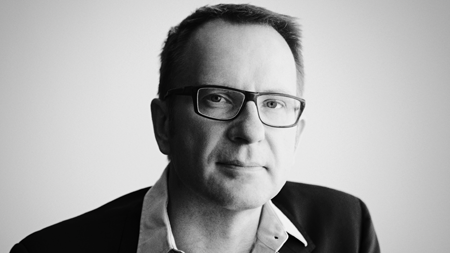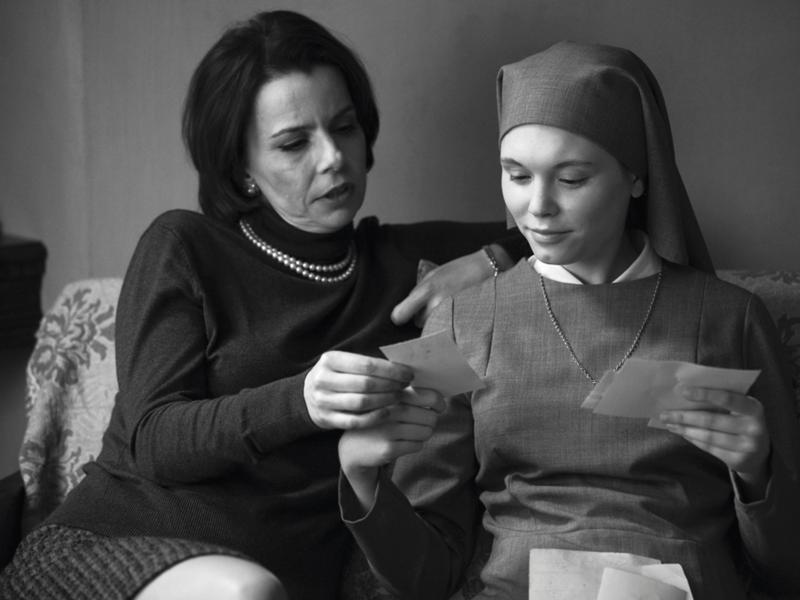What initially made you want to work as a sound designer and composer?
"Ever since my formative years, I have played music and explored the language of music. Consequently, this led me to play around with the sounds of real life as 'instruments' and continue further into the world of cinema. I love telling stories and creating emotions through music and soundscapes."
When is your job most challenging?
"Every time I start working on a new film and have to find its exact style and narrative ... It's terribly difficult to create a strong narrative, and there are many factors at work in a film. So my biggest challenge is to find the possible expressions of the film, based on its initial vision."
What is your area of responsibility as part of a film production?
"As composer, I am in charge of the film's musical style based on the director's intention and vision. As sound designer, I take care of the film's auditory style based on the director's vision mixed with my own approach to the particular storyline. I make sure that the sound recordings are selected, and I collect sounds to supplement the whole. I also do post-synchronisation with the actors, work with the foley artist to make sure the real sounds are just right, create abstract sounds and atmospheric layers, choose music and decide how it's used. And then mix it all for the end product.
"This is of course a collaboration with members of the crew, especially the editors. My close collaboration with Molly Malene Stensgaard on Lars von Trier's films is one example. The editing stage is a good time to deliver the music and ideas for the sound design in order to make it an integrated part of the film as quickly as possible. If you're late in getting involved in the process there is a risk that the music will be lagging behind the visual side of the finished film.
"When I'm in charge of both areas of responsibility, I can truly base my work on the idea that the entire auditory side of a film is one composition. To be able to create a film's aesthetic, I prefer to be part of the project when the script is being developed."
What is the most fun aspect of your job?
"When there is a breakthrough in the myriad of ideas, and they've been cut down to a few focused ideas; this enables me to work in a flow and collect a thousand ideas and make them work as a whole. This tends to happen especially when I compose music and when I'm putting the finishing touches to a mix.
"Working with orchestras of all sizes is amazing, too. It's lovely to hear other musicians interpret my score or improvise. I am generally happy about my job and all the lovely people I get to work with."
How much do directors in general reflect on the sound?
"It varies greatly from different directors and films, but luckily I often work with directors who reflect greatly on sound. It's not necessarily every time, however, that you share a language to express your thougts accurately, so it can be quite a challenge to understand what the directors wants. This is mainly an issue with first-time collaborations, as a mutual understanding will quickly be achieved through the unique language that does eventually emerge.
"A great deal of trust is required from the director. If the directions are too detailed, the result might end up rigid, and I personally go a long way to avoid sound and image being entirely 1:1. That something visually sad is supported by the same kind of sadness in terms of sound, for example. The right match between composer-sound designer and director is just as important as finding the right cast."
"Ida" trailer
Danish film professionals are quite sought after for international co-productions. Why is this?
"The attractive part of working with Danish filmmakers, I think, is that we work in such small teams, which makes us take responsibility for – and generally have a broader knowledge of – the process. This way, the director can go about dealing with fewer people."
What are the advantages of working on an international co-production?
"It gives me new ways of thinking about sound, because other approaches force me to seek out new methods. A little push is healthy but it requires very clear communication as I often work through Skype, e-mails and short, concentrated meetings. The level of contact is less direct as it usually is, but this only sharpens my focus.
"Generally, it's rewarding to have some diversity in what you do, both in terms of content and location. The international network that arises through co-productions offers an incredible access to international artists that I still keep in touch with. They are a great source of inspiration and have become collaborators on projects that aren't necessarily co-productions."
Do you occasionally sense a "cultural divide," or is the language of film international, so to speak?
"I've always been inspired by cinematic traditions from around the world, and I don't think there is a particularly Danish sound. But I think we have a stronger tradition when it comes to taking the possibilities of sound very seriously, and that we want to develop the auditory part of films. I think foreign directors can sense this and appreciate it. I have often experienced great excitement regarding this kind of eye-opening experience in relation to just how much can happen to a film's aesthetic through sound."
"Ida" is co-produced by Christian Falkenberg Husum with financial support from the Danish Film Institute. Besides Kristian Selin Eidnes Andersen, other Danes have worked on the film, sound designer Claus Lynge being one of them. Full credits can be found in the Film Database.
"Ida" has received two Academy Award nominations: Best Foreign Language Film and Best Cinematography. The Oscars will be handed out on 22 February.
Translation from Danish: Martin Hjorth Frederiksen



